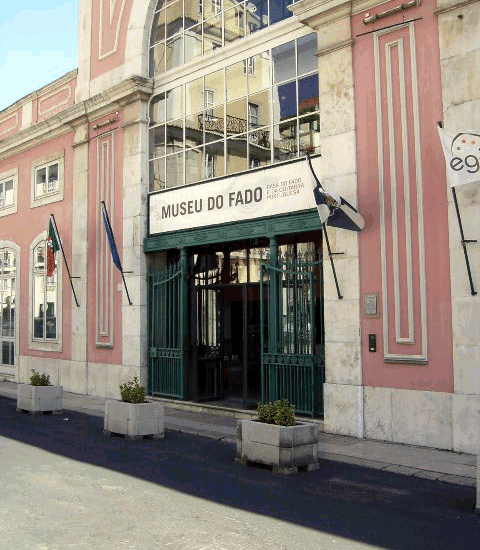Welcome to Alfama, Lisbon’s oldest district, where the echoes of traditional Fado music fill the air and the cobblestone streets whisper stories of the past. Here, at the Museu do Fado, you’ll embark on a journey through the soul-stirring world of Fado, a genre that is as much a part of Portugal’s identity as the vibrant tiles that adorn its buildings.
Established in 1998, the Museu do Fado stands as a tribute to this unique musical tradition. But Fado’s roots stretch back much further, with its origins traced to the 1820s. This was a time when Lisbon was a melting pot of cultures and ideas, and Fado emerged from the city’s neighborhoods as a poignant expression of longing and melancholy, known as ‘saudade’.
Throughout its history, Fado has been embraced by the people of Lisbon as a form of storytelling and emotional release. The museum’s exhibits guide you through this rich history, showcasing the evolution of Fado from its early days to its current resurgence in popularity. You’ll encounter audiovisual displays that bring the music to life, as well as archives filled with sheet music, photographs, and recordings.
One of the most notable figures in Fado is Amália Rodrigues, often referred to as the ‘Queen of Fado’. Her powerful voice and emotive performances brought international recognition to the genre, and her legacy is enshrined within the museum’s collection. Other influential artists, such as Alfredo Marceneiro and Maria Severa, have also left indelible marks on the genre, and their stories are woven into the fabric of the museum.
The museum not only preserves the history of Fado but also promotes its future. It frequently hosts concerts and cultural events, inviting both seasoned Fado singers and new talents to perform. This commitment to living culture ensures that Fado remains a vital part of Portugal’s artistic heritage.
Situated in the heart of Alfama, the Museu do Fado is perfectly positioned to extend your exploration of this enchanting district. After immersing yourself in the world of Fado, you can wander the narrow alleys of Alfama, where traditional Fado houses still offer intimate performances, allowing you to experience the music in its most authentic form.
As you leave the museum, consider the broader historical context of Fado. It has served as a soundtrack to the lives of the Lisboetas, capturing the city’s triumphs and tribulations through decades of change. From the shadow of the devastating 1755 earthquake that reshaped Lisbon to the cultural renaissance of the 20th century, Fado has been a constant, binding the past with the present.
Today, the Museu do Fado stands not just as a repository of history, but as a vibrant cultural hub. It invites visitors to not only learn about Fado but to feel it, ensuring that this quintessentially Portuguese art form continues to resonate with new generations, both in Lisbon and beyond.





